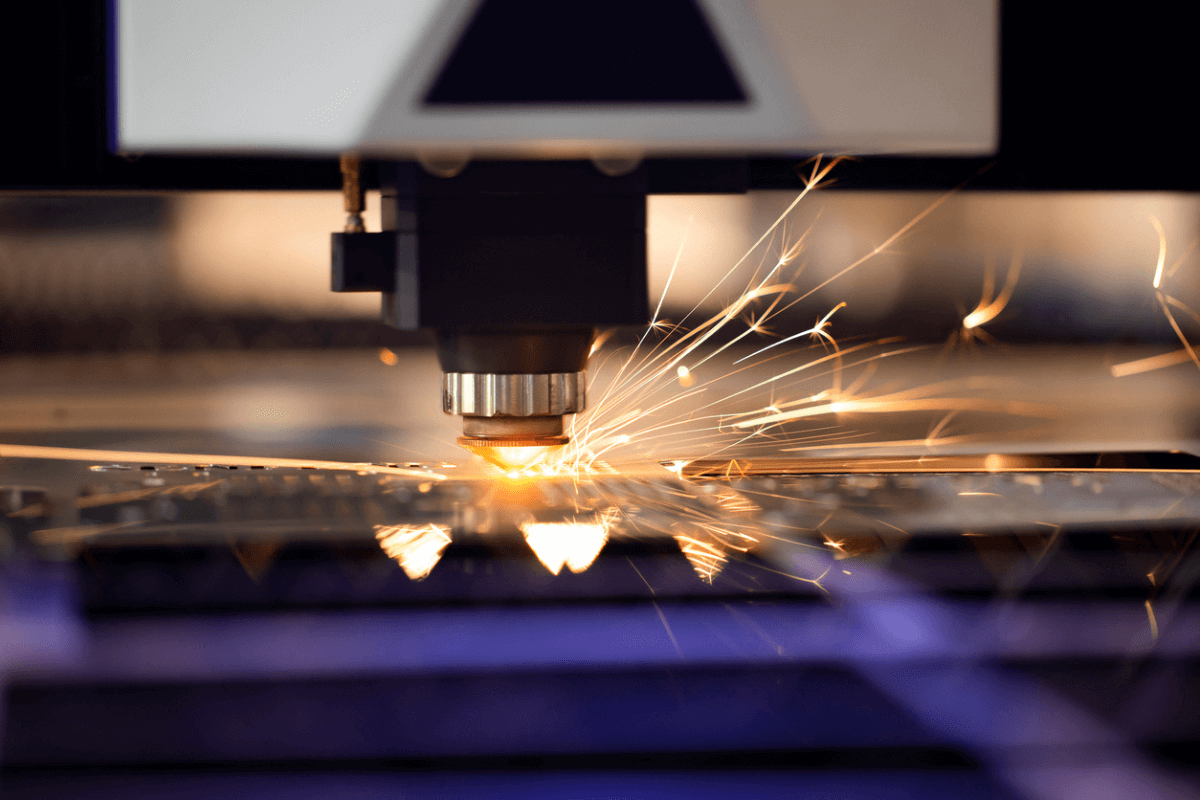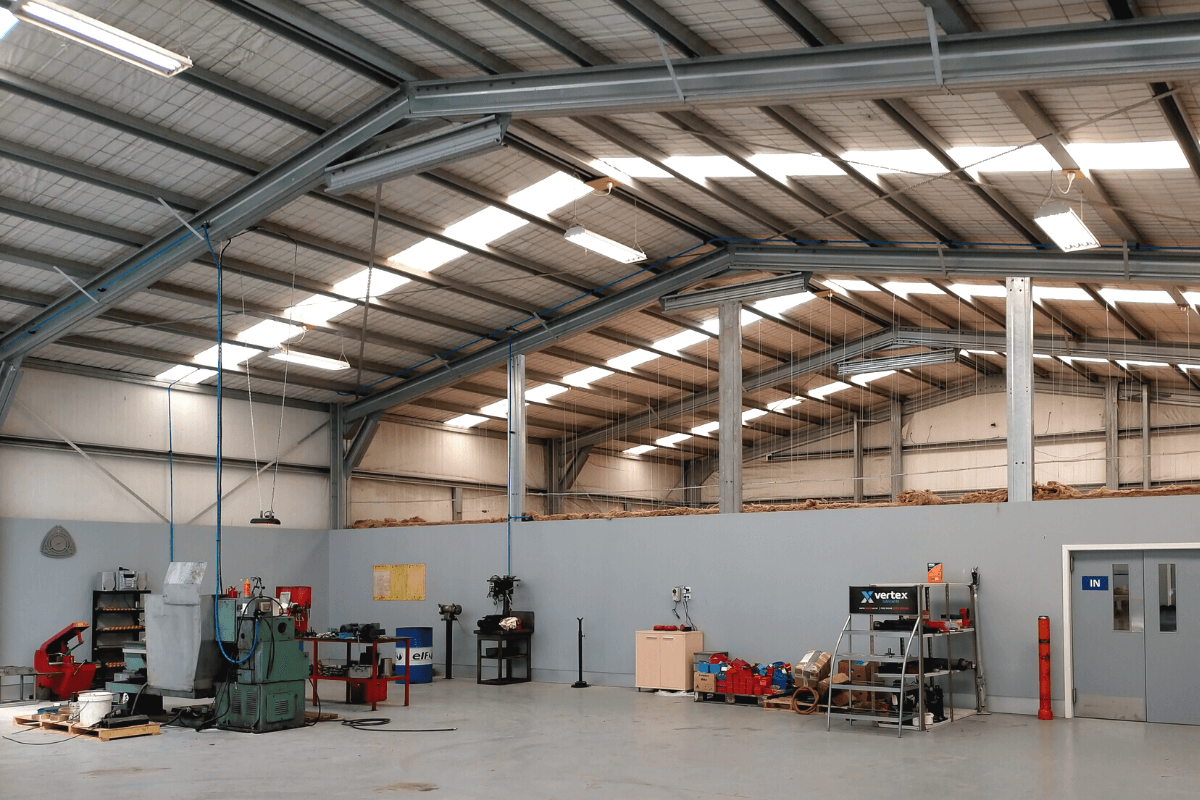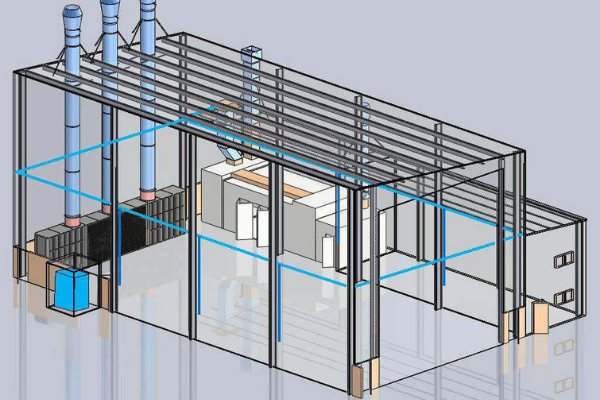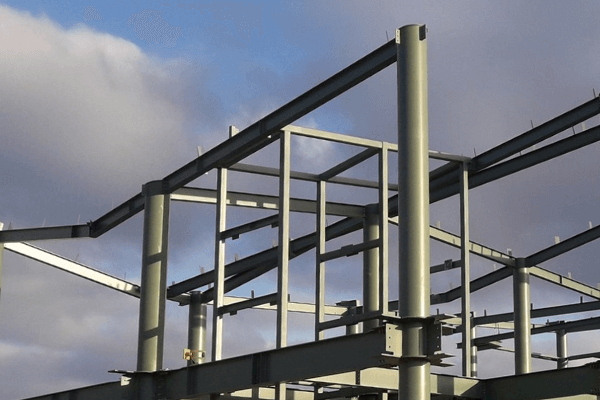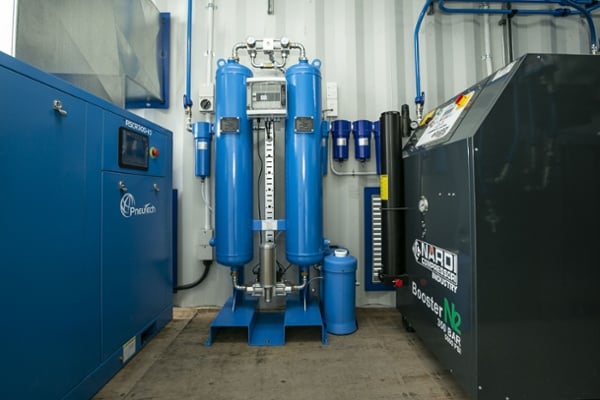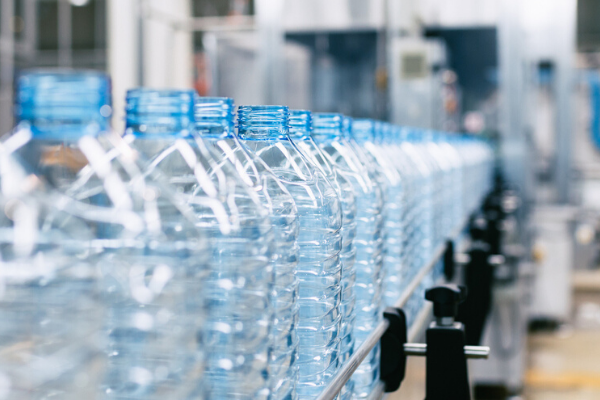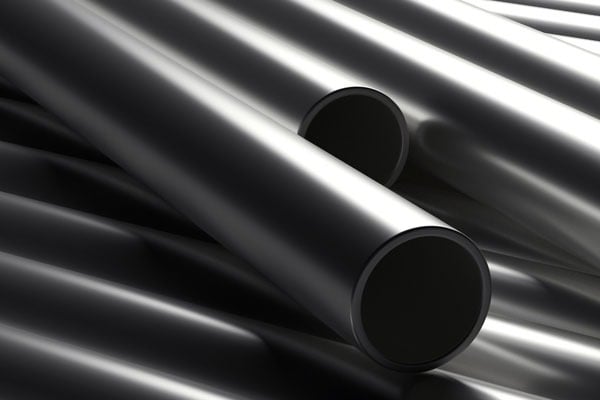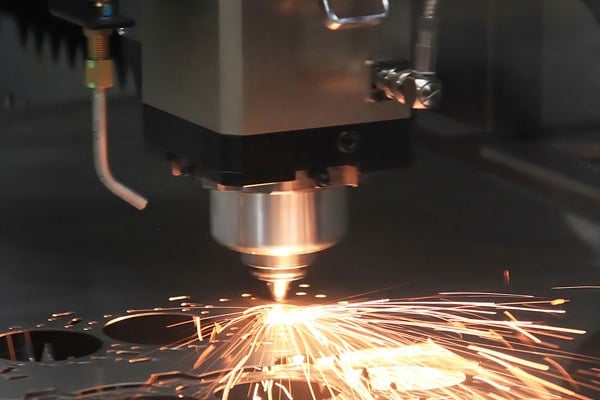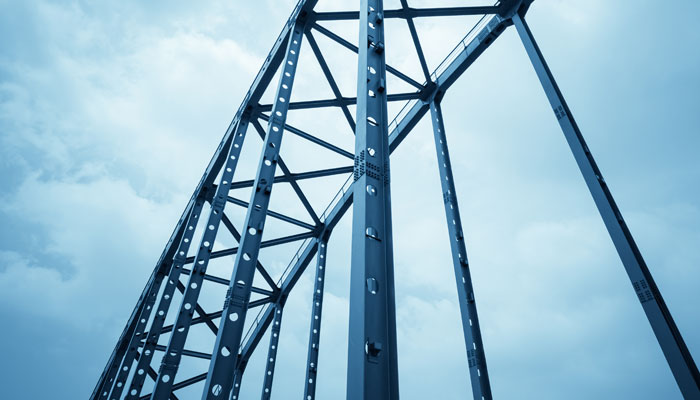In higher altitudes, a decrease in air density impacts mechanical efficiency and reduces compressed air output. New Zealand’s diverse topography features a range of elevations, which may lead you to question the impact this has on an air compressor.
In this article, we explain how altitude affects air compressor efficiency and how to mitigate these effects. We explore reduced outputs, increased power consumption, and the long-term impact on different types of compressors.
The impact of elevation on air compressor performance
Operating air compressors at high altitudes presents unique challenges that can significantly impact their performance. With lower air density, air compressors are prone to decreased performance, increased power requirements, and overheating. These challenges must be carefully managed to ensure optimal operation.
In this section, we explore these challenges in more detail and then discuss how to minimise the effects in your own system.
Reduced air density
As altitude increases, air density and air pressure decrease. At higher elevations, there are fewer air molecules in any given volume, which directly affects a compressor's ability to intake air. Consequently, the air compressor will produce less volume of compressed air compared to an equivalent one operating at sea level.
It is common for air compressors to be derated at high altitudes, which means their capacity is reduced. Manufacturers typically provide a derating factor for various altitudes.
Reduced air pressure
On top of the volume decrease, a compressor will also struggle to compress a given air pocket to its standard-rated output pressure when operating at higher altitudes. This is because, at elevation, air used by the compressor starts at a much lower pressure value and doesn't have enough time in the compression stage to get to the rated output pressure before being released from the compression stage.
Increased power requirements
Since the compressor must work longer and harder, it will consume a lot more power to achieve the same output. This results in decreased efficiency and potential overloading of the system. In particularly high altitudes or high-demand systems, a more powerful motor may be needed to offset the impact of higher elevation.
Overheating
When operating at a higher altitude, an air compressor is prone to overheating because it has to work harder. With lower air density, cooling measures for internal components will also take longer, causing higher overall operating temperatures. Overheating can cause premature wear and tear, increasing maintenance and reducing the system’s lifespan.
Impacts on different compressor types
Depending on the type of air compressor, the impact of elevation will vary. Some compressors will struggle at higher altitudes, including reciprocating air compressors and centrifugal air compressors.
The best air compressors for high altitudes tend to be rotary screw compressors and scroll compressors. This technology provides more consistent airflow, meaning it is less affected by lower air density.
For more advice and specifications, download our free Air Compressor Buyers Guide.
How to optimise your air compressor at high altitude
When adapting air compressors for high-altitude operations, it is essential to achieve a balance of efficiency and reliability. The most effective solution is known as derating the compressor to match the reduced air density. We also recommend that you seek expert advice.
Derating an air compressor
Derating involves reducing the compressor's rated capacity based on the reduced air density. This is typically done by adjusting the compressor’s output or the volume of air it can produce.
By adjusting the capacity, manufacturers ensure that the compressor operates within its limits, avoiding overloading or inefficiency. Derating can result in lower air delivery but reduces the risk of total system failures. The derating factor is usually available from the manufacturer, specifying how the performance will be impacted.
Expert consultation
When installing or upgrading your compressed air system, our specialists will bring the experience, know-how, and trusted formulas to support you. By evaluating your air demand and operations, we will optimise key performance indicators, including pressure output, airflow, and temperature.
We will also make precise adjustments for your needs, assessing the specifications of your system with careful consideration of the altitude. We can also recommend enhanced cooling systems, compressed air piping, and other customised solutions to ensure reliable performance.
Ongoing maintenance and air audits
Once your system is operational, our experts are available for preventative maintenance and ongoing support. With regular inspections and timely parts replacements, we will minimise the risk of costly breakdowns and downtime. We can also provide leak detection, full air audits, and other compressed air services to maintain the best possible performance.
We understand your expectations for guaranteed service backup. That’s why we deliver reliable services 24/7, 365 days a year to ensure your team stays running at the most crucial times.
Buyer’s Guide: Compressed Air Systems
If you’re purchasing an industrial air compressor or looking to upgrade, it always helps to have advice to guide you through the process. Inside our Buyer’s Guide, you'll get all the information and advice you need to make an informed decision.
- Types of industrial air compressors.
- Insights into air compressor technology.
- Comparisons of oil-free and oil-lubricated compressors.
- Specifications on the full PneuTech range.
To get your free copy of our full Buyer’s Guide, click below.



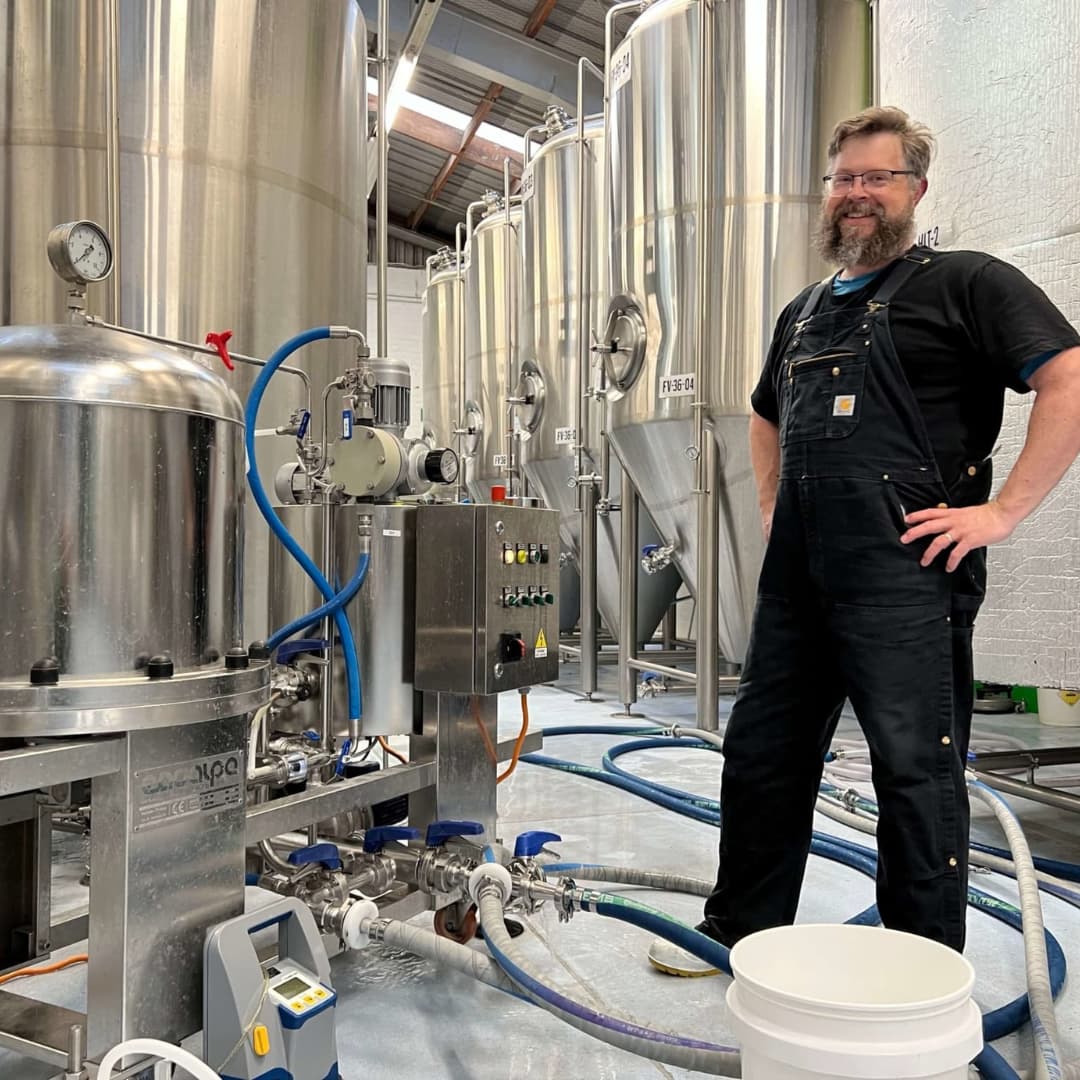
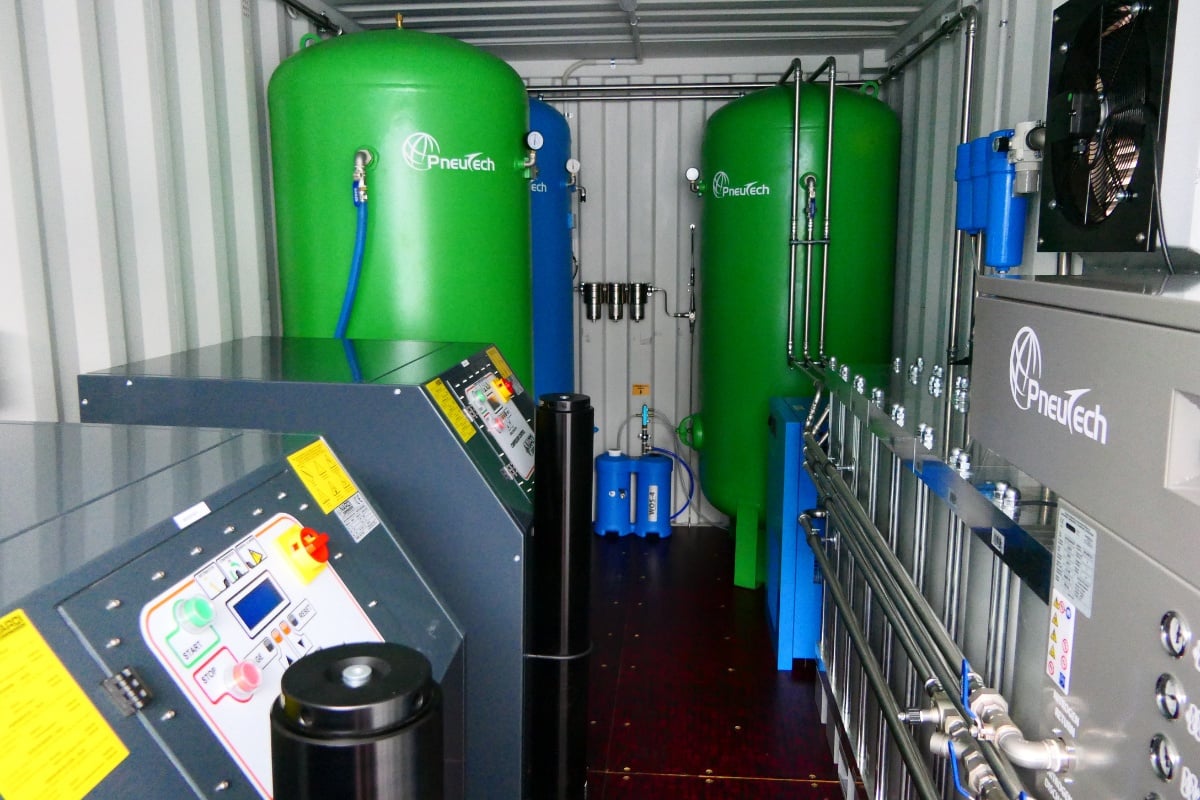
.jpg)


